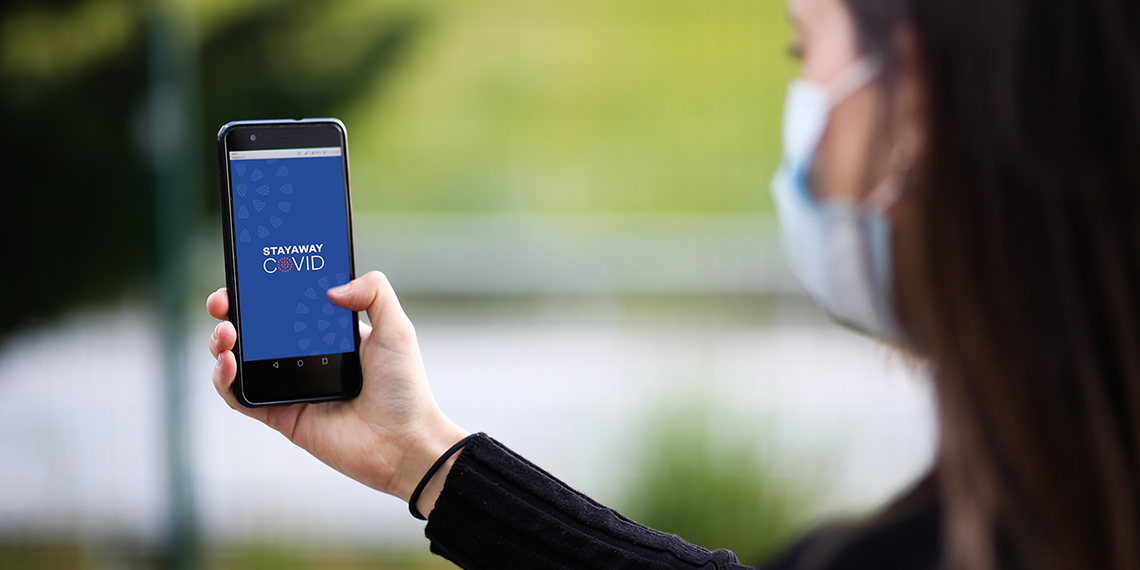STAYAWAY COVID: pilot project begins with invitation to thousands of participants
The new coronavirus tracing application is already in the final testing phase. For about 10 days, INESC TEC employees and participants in the Diaries of a Pandemic will be able to test the STAYAWAY COVID technology.
29th July 2020
About nine thousand participants in the Diaries of a Pandemic study, together with the INESC TEC community, were invited to voluntarily test the COVID-19 tracing app, and they have an opportunity to provide feedback regarding its usability. Simultaneously, and during this stage, the Portuguese National Cybersecurity Centre (CNCS) will carry out technical scalability tests, in order to analyse and comment on the code and the various decisions concerning the design of this tool. The tests will help addressing any security vulnerabilities.
In this sense, the pilot phase of the STAYAWAY COVID application aims to identify potential problems of installation or use in a real context of use, but in a limited group of users, before moving on to the generalisation phase.
Rui Oliveira, member of the INESC TEC Board of Directors and Project Coordinator, points out that this pilot test is extremely important, since it allows testing the entire system, and not just the mobile application, with a very diverse set of users. Moreover, it allows having a sense of the scale requirements, vital to extrapolate more safely what is actually required for the application to be rolled out nationwide.
Autonomy and respect for data privacy
Relying on Bluetooth – rather than geolocation -, STAYAWAY COVID will quickly alert the users to recent close contacts. Bluetooth Low Energy (BLE) technology senses when two people - with the application installed on their devices - meet for more than 15 minutes, and less than two meters from each other, writing down the codes exchanged by each device.
The system includes a mobile application and two internet services: a validation service for medical actions (a server integrating the Shared Services of the Ministry of Health - SPMS) and another hosted by the Portuguese Mint and Official Printing Office - more specifically, a high security server, which will store the random, encrypted codes that mobile phones exchange.
Legal framework
The testing phase started after the Government approved, after a meeting by the Council of Ministers, the decree-law that establishes the Directorate-General for Health (DGS) as the entity responsible for processing data from the STAYAWAY COVID application.
The application already obtained the green light from the Apple and Google operating systems, and it expected to be rolled out nationwide during the upcoming weeks.
The Institute for Systems and Computers Engineering, Technology and Science (INESC TEC), the Institute of Public Health of the University of Porto (ISPUP), and the Keyruptive and Ubirider spin-offs were responsible for developing the app, in partnership with the Portuguese National Cybersecurity Centre (CNCS).
The Foundation for Science and Technology (FCT) promoted this project, within the scope of the National Digital Competences Initiative e.2030, Portugal INCoDe.2030.
More information is available online.
The INESC TEC researcher mentioned in this news piece is associated with UP-FEUP.


